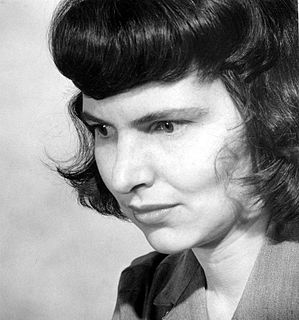A Quote by Nancy Newhall
Perhaps the old literacy of words is dying and a new literacy of images is being born. Perhaps the printed page will disappear and even our records be kept in images and sounds.
Related Quotes
At birth we begin to discover that shapes, sounds, lights, and textures have meaning. Long before we learn to talk, sounds and images form the world we live in. All our lives, that world is more immediate than words and difficult to articulate. Photography, reflecting those images with uncanny accuracy, evokes their associations and our instant conviction. The art of the photographer lies in using those connotations, as a poet uses the connotations of words and a musician the tonal connotations of sounds.
The Huygens images were everything our images from orbit were not. Instead of hazy, sinuous features that we could only guess were streams and drainage channels, here was incontrovertible evidence that at some point in Titan's history - and perhaps even now - there were flowing liquid hydrocarbons on the surface.
I am myself a professional creator of images, a film-maker. And then there are the images made by the artists I collect, and I have noticed that the images I create are not so very different from theirs. Such images seem to suggest how I feel about being here, on this planet. And maybe that is why it is so exciting to live with images created by other people, images that either conflict with one's own or demonstrate similarities to them.
Sometimes I see my students, especially the ones with a gift for the lyrical, reaching far outside the realm of their own experience for language and images. I understand this impulse. We think, in the beginning, that striking exotic words together will create something entirely new. That we must be worldly in our vocabulary. We idolize the styles of other writers and don't trust or perhaps yet know our own.
Financial literacy is not an end in itself, but a step-by-step process. It begins in childhood and continues throughout a person's life all the way to retirement. Instilling the financial-literacy message in children is especially important, because they will carry it for the rest of their lives. The results of the survey are very encouraging, and we want to do our part to make sure all children develop and strengthen their financial-literacy skills.





































